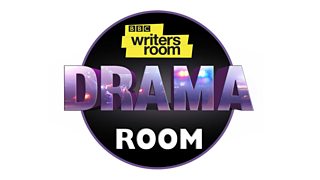is part of our Drama Room writer development group for 2018. He looks back at the group's recent two-day workshop on writing TV Drama and shares loads of useful advice and information he picked up during the days.
The writers on our Drama Room development scheme are identified through our open submission script room and other talent searches.
My dad looks at me suspiciously, ‘A scheme?’ He says this like it’s something not quite legal.
‘Yes Dad,’ I say, wanting to impress, ‘It’s the ±«Óãtv, the ±«Óãtv Writersroom!’
‘The ±«Óãtv?’ he says. I can see he’s having a think about this. But not about the enormity of the opportunity. No, he’s thinking practically.
‘Well,’ he says, ‘What are you going to do?’
‘Well,’ I say, still eager, but not quite sure, ‘It’s - it’s writers' development, we’ll - we’ll be doing… workshops… and stuff. Things… to make us better… writers.’
My voice trails off. My dad is still not impressed. To be fair, he’s 83 and a mid-Westerner; born in Lincoln, Nebraska, USA in the 1930s at the height of the Depression. At heart, he’s a plainsman, and they’re never easily suckered. Scheme or no scheme, they just want to know what the bottom line is.
‘Hmm,’ he says again (he’s still having a think). Then there’s a long pause, while he looks for something in what I’m saying that he can translate into his own estimation.
‘So,’ he says, ‘You’ve got yourself a job?’
‘No, Dad,’ I say quickly, ‘No, there’s no job.’
‘You’ve won something?’
‘No.’ My voice trails away again, ‘No, it’s not a prize either.’
It’s no good. It’s not a job, it’s not a qualification, it’s not even an award. My dad can see that I’m really really excited about it, but I can’t persuade him of the use of doing a ‘scheme’ - I can’t even tell him what I’ll be doing on this scheme.
I’m a grown-up, for goodness’ sake. I mean, like I’m old. But let’s face it, deep down, in my heart, the bottom line is that I still just want to impress my dad.
So what have we been doing on this scheme?

Days Three and Four at New Broadcasting House focused on TV Drama, and, like , over the course of the two days we were introduced to a host of key players in the industry, from Script Editors, to Producers, to Heads of Development and Commissioning Editors, and we were taken through the various methods and means by which finished shooting scripts are created from the seed of an idea, through development, to commissioning, and eventually (hopefully) to production.
It’s a big ol’ complex system, and as my dad would say there’s more than one way to skin a cat, which means that in TV Drama every script idea has its own particular journey from germination to production. But these two days of masterclasses/workshops covered all the main points, and were brilliant at showing firstly, what’s involved in all the different possible stages of developing a script (and who’s involved in these stages); and, secondly, what the writer needs to be thinking about and focusing on at any (and every) particular stage.
The focus of the two days naturally gravitated towards what for a writer is the Holy Grail of TV Drama production, the ‘Original Sole-Authored Drama Series’. But what also emerged was the myriad of ways that a writer might be needed to work on TV Drama, from working on existing long-running shows, to collaborating with other writers in a US-style writers' room, to pitching germinal ideas to producers and production companies for shows that don’t yet exist.
Despite all these different ways of writing Drama for TV, part of what gets a writer noticed in the first place (and what brings the work) is their own personal vision or voice, which means coming up with sparky, original ideas that look like they could be developed into TV series. These are mostly expressed in ; and also in the that we’re writing while on this scheme. So naturally many of the sessions over these two days were geared towards the idea of the ‘Original Sole-Authored Drama Series’ and the implications of this for the writer.

The Split - created by Abi Morgan
For example, script editor , who works extensively with writer (River, The Split), took us in detail through the work that a script editor does with a writer, in both the early stages of developing an idea (questions for the writer: ‘What do you want to say with this script?’, ‘What fundamentally is this story about?’), and then later, when drafting (e.g. - ‘Look for the note behind the note.’). Clare used her work with Abi on recent ±«Óãtv series The Split as a practical example, walking us through the early stages of her discussions with the writer, through the various stages of outline, treatment, script, and giving details to their approach to mapping out the series across 6 episodes: each character arc strand is worked out across all the episodes (‘story-lining’), which then leads to an outline or treatment of each episode, and this leads to the drafting of each episode (Clare noted that ‘you can story-line, and then, when you script, the characters can do things and say things which make you return to the story-lining.’). There was a sense of fluidity in the process, of weaving back and forth between the different stages, but the role of the script editor seemed crucial to a) bring out what is latent and potentially amazing in a script idea; and b) make sure the creative process stays on track, and arrives at a concrete end result in some kind of reasonable time-frame (notwithstanding the fluidity of the process).
Watch an interview with screenwriter Abi Morgan from our 2014 Writers' Festival
touched on similar stages of development - outline, story-lining, treatment, scripting - but in the context of teaching us about an American-style writers' room; a collection or collaboration of a group of writers (there might be as many as 9 of them) led by a Head Writer (in some instances referred to as the ‘show runner’) and supported by writers in more junior positions (who may be, for example, taking notes of all the discussions). Ben gave us the detailed insider’s view of how this process works in practice, using as an example his experience on recent American TV series . At first, the idea of so many writers in one room, all trying to co-ordinate their creative vision into one perfect whole, may look intimidating (particularly to British eyes, where there is more of a tradition of the ‘lone’ author) but Ben showed us how this system or approach can work to create something as beautiful as anything that has come out of a solo writer’s head. Like the creative intimacy described by Clare Batty between writer and script editor, the same sense of respect and collaboration - of being open to the ideas of others, of welcoming the energy that different perspectives bring to the same idea – emerged from Ben’s description of an American-style writers room.
The basic technique used by a writers' room again seems frighteningly precise: there's a ‘board’ on the wall (a cork board) consisting of neatly organised blank postcards in rows; each postcard has written on it one scene precisely articulated in 3 sentences; each row of postcards represents an act; there are five rows in all - four acts and a teaser at the top of the episode. The structure of four acts might seem arbitrary at first but in fact it's necessary for the ad breaks. If the notion of squeezing an episode outline into this tightly-regulated board structure seems anathema to those who would prefer a messier, more random (or intuitive) creative process, Ben pointed out that in the American approach to writing TV drama there is as much respect for the craft of storytelling as for the art of it, and that the idea of the ‘board’ is to draw together and pull into focus the disparate, energetic ideas of many heads. He showed us in his session that the resulting episode outline can be as exciting and as powerful as any produced by the ‘sole-authored’ method. We saw that, in fact, the finished board reads like an episode treatment (Ben pointed out that ‘a very good board can eliminate the first draft of a script.’)

If part of the job of a TV Drama writer is to come up with exciting new ideas for shows, the other part is to make strong and trusting relationships with producers and productions companies who might want to get these ideas made. Over the two days we met people from a number of different kinds of production companies who walked us through how they go about building these relationships. , Head of Development from independent production company , described the kind of approach taken by a reliable, well-established ‘indie’, and what to expect at different stages of the process: 1 or 2 page pitch or outline initially, before the idea is taken to the next stage; ‘development’ - working up to a series treatment/document and possibly an Episode 1 script; after which the idea may (or may not) be commissioned. A similar process of ‘pitch – development – commission’ emerged from all these conversations.
, Executive Producer/Head of Development, explained to us the significance of ±«Óãtv Studios, which now as a production company is separate (in a legal sense) from ±«Óãtv Broadcasting and is therefore able to pitch for commissions to a much wider market than before. Rose Garnett, Director of ±«Óãtv Films, which has a slate of about 100 projects (1 in 8 get made), took us through the differences for a writer working on a feature as opposed to working on a TV drama (basically, in film, the director is more important in terms of creative vision than the writer). Also, we spent time with ±«Óãtv Senior Commissioning Editors Elizabeth Kilgarriff and Mona Qureshi, who gave an insight into the development process from the commissioning point of view. This is a slightly different perspective from that of production companies, as Liz and Mona are part of the ±«Óãtv Commissioning team under Controller Piers Wenger, and this is the department in the ±«Óãtv that makes the final decisions whether to ‘green-light’ a script to production or not. Liz and Mona work with producers and writers, commissioning either a treatment or a script, to bring an idea to the point where it can be put forward for consideration and hopefully green-lit. Their perspective therefore is very much coloured by the ‘palette’ of drama that the ±«Óãtv is developing for broadcast in any given season, and they will be aware of other projects that ±«Óãtv Drama are already committed to taking forward.
If cultivating relationships with producers and production companies is key to a writer’s progress, then the ability to pitch an exciting, attention-grabbing script idea is key. For this , who leads , the Channel 4 screenwriting course, ran two workshops over the 2 days looking at what makes a standout pitch and what skills are required to deliver it. First, to clarify, this doesn’t mean pitching in the American-style stand-on-a-stage-in-a-spotlight-and-rattle-off-your-pre-rehearsed-2-min-patter. No, British-style pitching is much more nuanced. ‘Have production companies asked you in for a ‘cup of tea’?’ Philip asks us. (‘Yes,’ some of us answer, ‘But we didn’t know what they meant.’) Well, it turns out this mysterious ‘cup of tea’ is in fact a chance for companies to get to know a writer better (and for us to get to know them) and more importantly, this is the opportunity for us to pitch our best ideas, and persuade the company that we’d be good to work with. So be prepared. Forget the tea. Forget the cake even. In the end the very polite, British ‘Would you like a cup of tea?’ masks the real bottom line in this situation (one that even my dad would be proud of) - ‘Tell me, what ideas have you got?’
But Philip has bad news: over the past few years he has spoken to many newer writers about their work, but (he says) he’s heard very few good pitches from them. This, he says, is because a pitch is more than just a story, more even than just a subject or topic that a writer wants to write about: a pitch is a story with an idea behind it. Something bigger than just the particularities of the story; it’s the thing that connects the story directly with the audience; it’s the theme, the premise; the idea is what the story is about. Therefore, he says, in preparing our pitches, we should do some proper development on the idea first. It should be something that genuinely excites us, a story that we’re really keen to tell. Don’t arrive at your ‘cup of tea’ meeting with just scraps of ideas that haven’t been considered deeply. Philip is clear: ‘Have your ideas ready and be excited about writing them.’
With that, Philip hands us each two pages of newspaper and tell us to come back the next day with a pitch based on something that we’ve read anywhere on these two pages. And make sure that the story has an idea behind it.
No pressure then.

The 2018 Drama Room writers
I go home and sit on the bed and read my shreds of newspaper. I can’t think of anything. I read the bits of newspaper again. I can’t think of anything, again. I brick it. I climb under the covers whimpering, thinking about how I’m on this amazing writer development scheme, surrounded by clever people, and I’m about to reveal to the whole room how paltry, vapid and sterile my writerly imagination really is. And everyone in the room will know it when they hear my pitch, which, as Philip has promised, is bound to be not very good, if not outright awful.
I tell myself to stop being such a drama queen and get some sleep. I’ll think about it in the morning. (Which I do.)
Naturally before I go to sleep I pray to my dad (who’s still alive so I guess I could’ve phoned). ‘Please, Dad,’ I say under the covers in a secret whisper, ‘Please, please, please, tomorrow - don’t let me bring sh*t to the table.’
The next day, I’m glad to say, Dad answers my prayers, and my pitch passes muster – in fact, all the writers around the table turf in a really good idea, with lots of zing and oodles of imagination. It’s the first time we (the Drama Room writers) have shared creative work directly with each other, and it seems to have a really good effect – we get an insight into how each other’s minds work, what lights us up as writers. (But I can see what Dodie Smith says is true, : there’s at least one idea in the room that I want to steal wholesale and write myself.) (Sorry I promise I won’t.)

Thirteen, written by Marnie Dickens for ±«Óãtv Three
And lastly but not least, over the course of the two days we got to meet lots of working writers, all of whom are working in TV Drama in a variety of ways, and all of whom very generously shared their experiences, both good and bad, and gave advice: so a big shout out to , , , , and also to , who all gave freely of their time. Sophie’s and Marnie’s experiences were particularly interesting because they have both created, developed and written that elusive prize, the ‘Original Sole-Authored Drama Series’ (Marnie wrote the hugely successful Thirteen, currently available on ±«Óãtv iPlayer as a box set; Sophie’s original series Blood will be available on C5/Virgin Media/Acorn). Both spoke of the pressures of solo-authoring an entire series, the sheer volume of work it takes, with added pressures such as re-writing once in production, or working as an executive producer as well as writer on the series. Marnie took us step by step through the whole process of creating Thirteen, from germination through to broadcast: this was incredibly helpful to see that while this kind of writing for TV Drama is an amazing artistic experience, it can also – whilst in production - eat your life. The funniest bit of advice came from Francesca Gardiner, who suggested that the most important thing for a TV writer to remember is: ‘get some sleep’.
It was an intense two days, and we covered a lot. I’m happy to say that after the 2nd day finished we ended up at the pub, where we had a much-needed drink, chat, breather and a chance to process what we’d just done.
So, Dad – that’s what we’re doing on this scheme.
To be fair, in the pub last week, my dad turned to me in a quiet moment (we were celebrating my nephew’s birthday) and said ‘This - scheme you’re on… you know, we’re proud of you.’
And he smiled that lovely smile of his, his pale blue eyes.
I know. I’m being a child. I don’t need to impress my dad. Not anymore.
Find out about the Drama Room and
, including , and
including House of Cards
